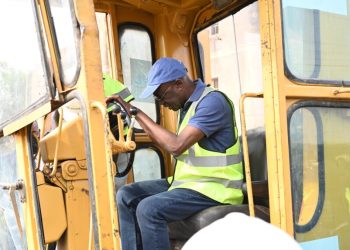*Commission says 7m Nigerians yet to complete registration exercise
*Lagos, Kano top on registration portal
By Eze Nzeh
As the Independent National Electoral Commission (INEC) shut its portal for the Continuous Voters Registration (CVR) exercise, on Sunday, the commission has come under severe pressure to allow more Nigerian the opportunity to register and exercise their franchise in the upcoming 2023 general elections.
This is even as INEC has indicated that about 7m Nigerians were not able to complete the registration exercise before the shutting down of its portal, raising several requests from eligible voters and Nigerian youths who has besieged the INEC registration centres on Sunday before the close of time, but were not captured by the commission’s staff on duty.
Reacting to development, the Socio-Economic Rights and Accountability Project, (SERAP), called on the Independent National Electoral Commission, INEC, to urgently allow Nigerians to complete voter registration.
SERAP said INEC should allow seven million Nigerians to complete their registration, stressing that Nigerians who have started the process should be allow to complete the registration process to take part and exercise their voting rights in the 2023 general elections.
INEC had said over seven million Nigerians failed to complete their online voter pre-registration at physical centres.
The continuous voter registration exercise (CVR), which began in June 2021, ended on Sunday, July 31, 2022, following an appeal court ruling that failed to uphold the lower Court earlier order on the extension of the process.
INEC had launched a portal where Nigerians could register by filing in their bio data and required documents, after which they were expected to visit INEC designated centres to complete the process physically.
Reacting, SERAP, in a tweet, wrote: “INEC must urgently allow the over seven million Nigerians who reportedly carried out their voter pre-registration online but could not complete the process at physical centres, to complete their registration so that they can vote in the 2023 elections.”
I would be recalled ha Nigerian youths and prominent political actors had earlier called for an extension of the exercise to enable eligible voters to complete the registration exercise so as to be part of the voting process of the 2023 polls
The Independent National Electoral Commission, INEC, had disclosed that over seven million Nigerians who carried out their voter pre-registration online could not complete the process at physical centres.
INEC revealed this as the continuous voter registration exercise (CVR) ended on Sunday.
According to a report released by the commission, 10,487,972 Nigerians carried out their pre-registration online.
The commission stated only 3,444,378 Nigerians representing 32.8 percent, completed the process at a physical centre.
The 7,043,594 persons accounted for over 67 percent of those who began their registration process online, but could not obtain a voter card, which implied that they will not be able to vote in the 2023 general elections.
Meanwhile, INEC said a total of 12,298,944 Nigerians completed their voter registration; 8,854,566 of which were persons who did their registration entirely at a physical centre.
A breakdown of the figure by Vanguard indicated that of the fresh 12,298,944 registrants accounted for 6,359,711 people from the North while 5,939,233 people reside in the South, indicating a disparity of 420, 478.According to geo-political zones, the North-West accounted for the highest registrants with 2,514,273 people, while the South-South followed with 2,458,095 new registrants.
The North-Central trailed the North-West and the South-South with 2,314,368, while the South-West accounted for 2,039,982.The INEC report also indicated that the North-East accounted for 1,531,070 new registrants, while the South-East had the least completed registration with 1,441,156.
A state-by-state breakdown of the INEC database shows that Lagos and Kano had the highest number of new registrants with 585,620 and 569,103 respectively.
Delta State trailed them with 523, 517 applications, while Yobe and Ekiti states accounted for the lowest registration with 152,414 and 124, 844 applications.







